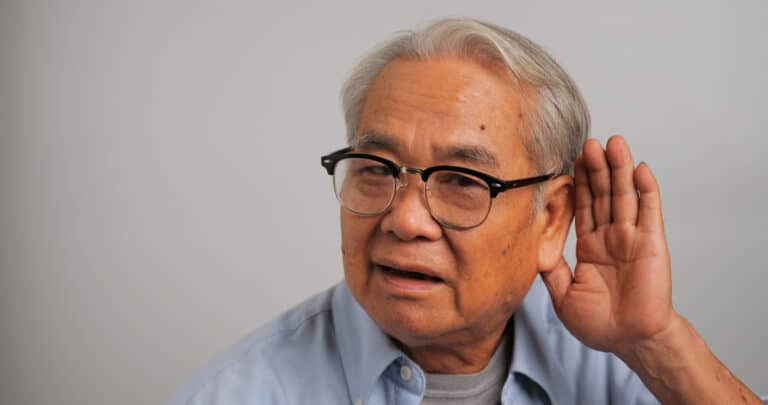Sudden sensorineural hearing loss (SSHL), often referred to as an “ear stroke,” is a medical condition characterized by a sudden loss in hearing, which can affect one or both ears. This hearing loss can occur abruptly or occur gradually over the course of a few days.
Without timely treatment, ear strokes can result in either temporary or permanent hearing loss. Knowing how to identify ear strokes and how to respond can improve the chances of recovery.
What is an Ear Stroke?
An ear stroke happens when there is a sudden, significant drop in hearing, usually within a span of 72 hours. Many impacted people first notice the condition upon waking up or when they try to hear with the affected ear. In most cases, the cause of the hearing loss is unclear, with only about 10% of cases having a known cause.
Why Does it Occur?
Several potential factors may contribute to an ear stroke, including:
- Disruptions in blood flow to the inner ear
- Viral infections
- Physical trauma
- Autoimmune diseases
- Ototoxic medications
- Ménière’s disease
Identifying Symptoms of an Ear Stroke
The most common symptom of an ear stroke is the sudden loss of hearing in one ear. However, other symptoms often accompany it, such as a feeling of pressure or fullness in the ear, dizziness, vertigo and tinnitus. Some individuals may also experience balance issues or nausea.
It’s important to distinguish an ear stroke from other types of hearing loss, such as those caused by aging or long-term exposure to loud noise. Unlike these gradual forms of hearing loss, an ear stroke occurs suddenly, without warning. If you experience sudden hearing loss along with any of these symptoms, seek immediate medical care. Acting quickly can significantly increase the chances of regaining lost hearing.
Treatment Options and Recovery
The treatment approach for an ear stroke depends on its underlying cause and how quickly treatment is initiated. High-dose corticosteroids are often prescribed to reduce inflammation and swelling in the inner ear. If the hearing loss is linked to a circulatory issue, such as a blood clot, medications to improve blood flow may be recommended.
The chances of recovering lost hearing are highest when treatment begins within the first two weeks of symptom onset. Delaying medical attention can raise the risk of permanent hearing loss.
In cases where hearing does not return, options such as hearing aids or cochlear implants may be explored. These devices can help amplify sounds and improve communication, making daily activities like having a conversation at a coffee shop more manageable.
If you or someone you know experiences sudden hearing loss, it’s critical to seek medical attention as soon as possible. Early intervention can improve the likelihood of recovery and reduce the risk of long-term hearing damage. For more information about hearing health or to schedule a hearing evaluation, contact PDX ENT today.



